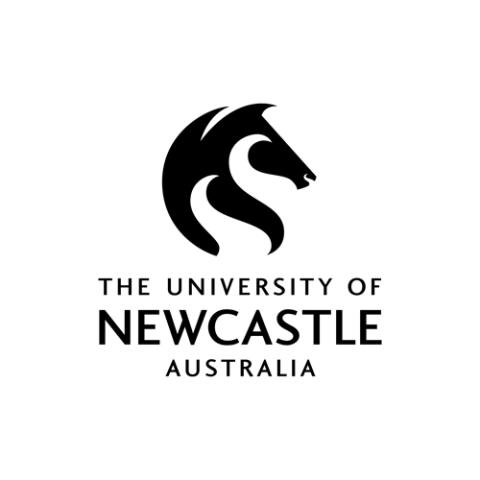
Careers services must step up to support students with disabilities
From shaping a culture of support to working with industry, careers services have an important role in improving employability for students with disabilities
Finding employment can be one of the largest hurdles for students with disabilities. Careers services are uniquely placed to help them recognise their strengths and to work with industry to improve the recruitment process.
Last year, Australia’s Disability Royal Commission recommended the Federal Government be “working with industry” to support people with disabilities “to access more inclusive, open employment options”. Universities can also play a role in this.
The social model of disability serves as a guide for the sector. It says people with disabilities are limited by barriers in society, such as prejudiced attitudes and physical inaccessibility. This model stresses the need to remove these barriers to well-being and success.
Careers services in essence have two options: to fit people into a potentially uncomfortable work situation or to empower them to embrace their uniqueness and participate in university life and to work with industry to adjust the recruitment process.
Removing barriers to support
First, careers services can foster stronger relationships with university support services through regular meetings, clear referral processes, joint development of student resources and shared professional development activities. Staff can continue to ensure support services are accessible for students with disabilities by actively reviewing online resources for readability and compatibility with accessibility tools. By adopting a student-centred approach, careers services, accessibility/disability services, counselling and student advocacy teams can leverage the insights they gain from students about the most effective methods for engaging, supporting and communicating with them to ensure that they identify and remove barriers to participation.
Careers staff play an essential role in supporting students with disabilities in preparing for employment and the recruitment process. Consultants can actively educate themselves on best-practice organisations for hiring talent with a disability, and learn from the lived experience of students to provide tailored support responsive to individual needs. For example, the NSW Government Graduate Program 2025 is actively encouraging applications from students with disabilities and has accommodations in place during the recruitment process to enhance retention. Accenture employees have access to an accommodations support tool and recruiters and senior staff are trained in managing requests for support or adjustment, such as ergonomic equipment, workstation modification and flexible work arrangements. Ernst & Young’s autism employment programme SwitchedOn led to neurodivergent team members sharing their stories and improving support in the workplace and the establishment of the Autism Workplace Champions programme.
Demystifying disclosure
Disclosure refers to the deliberate and personal decision to inform others about a disability. There’s no legal obligation to disclose in the job search, but students could hesitate if disclosing is perceived as career-limiting. They can be encouraged to disclose if targeted roles are on offer for people with lived experience, and if there’s representation of disability in an organisation’s leadership, an offering of flexible work arrangements, a supportive workplace culture and accessible and clear policies outlining processes for disclosure. This reinforces the need for staff to be on the lookout for best-practice organisations.
- Resources on equity, diversity and inclusion
- Creating inclusive spaces for inclusive events
- Disability, discrimination and redress: how to guide your students through the process of asking for reasonable adjustments
Strengths-based recruiting
Any one component of the traditional job application process, from writing job applications to performing effectively in interviews, can be exhausting for applicants with a disability. It stems from the need to “mask” some traits to appear more relaxed or genuine in social interactions or fit into a process that doesn’t accommodate their needs. Some students are highly skilled at masking, but these real-time, manual, behavioural adjustments come at a high mental cost.
Strengths-based recruiting offers a practical alternative to the traditional process, working with students to identify matches between their strengths and offered positions, and adjusting some aspects of the role.
It is effectively a reverse engineering of the entire process, where students and consultants work with employers to determine the needs of an organisation and how people with disability can serve those needs.
For instance, job interviews can include questions that best highlight the strengths of the applicant and identify areas where accommodations may be needed. For example:
- What are your top three strengths?
- What energises you?
- What qualities can you bring to this role?
- What behaviours would I observe when you are stressed or overwhelmed?
- How can we support you to do your best work in our team?
Careers services play an important role in strengths-based recruiting. Staff can engage with industry to demonstrate the benefits of including talent with a disability, with a focus on long-term investment. Consultants can help students practise for interviews and teach students how to frame their responses from a strengths-based perspective. Staff can advocate for students with disabilities, building strong relationships with industry to implement tangible employment outcomes.
Engagement beyond the classroom
A more compassionate university environment means students with disabilities are empowered to participate in leadership programmes, clubs, volunteering and events outside the classroom. Extracurricular activities give students an opportunity to further develop employability skills such as communication, problem-solving, self-management and organisational skills.
University-run activities (think volunteering, mentoring and leadership programmes) can be vehicles for this support. Staff can work to set expectations of what is required through clear communication. They can then encourage students to share adjustment requirements which, with permission, they can relay to supervisors and other relevant parties.
Consideration of disability in all aspects of university life will help students boost their employability. If supported through their entire journey, we can empower them to advocate for their own needs, demonstrate their strengths and inspire others to achieve their career goals.
Peter Hyslop is an engagement assistant at the University of Newcastle; Barbara Mackie is an employability consultant (diversity and campus projects) at the University of Newcastle.
If you would like advice and insight from academics and university staff delivered direct to your inbox each week, sign up for the Campus newsletter.



